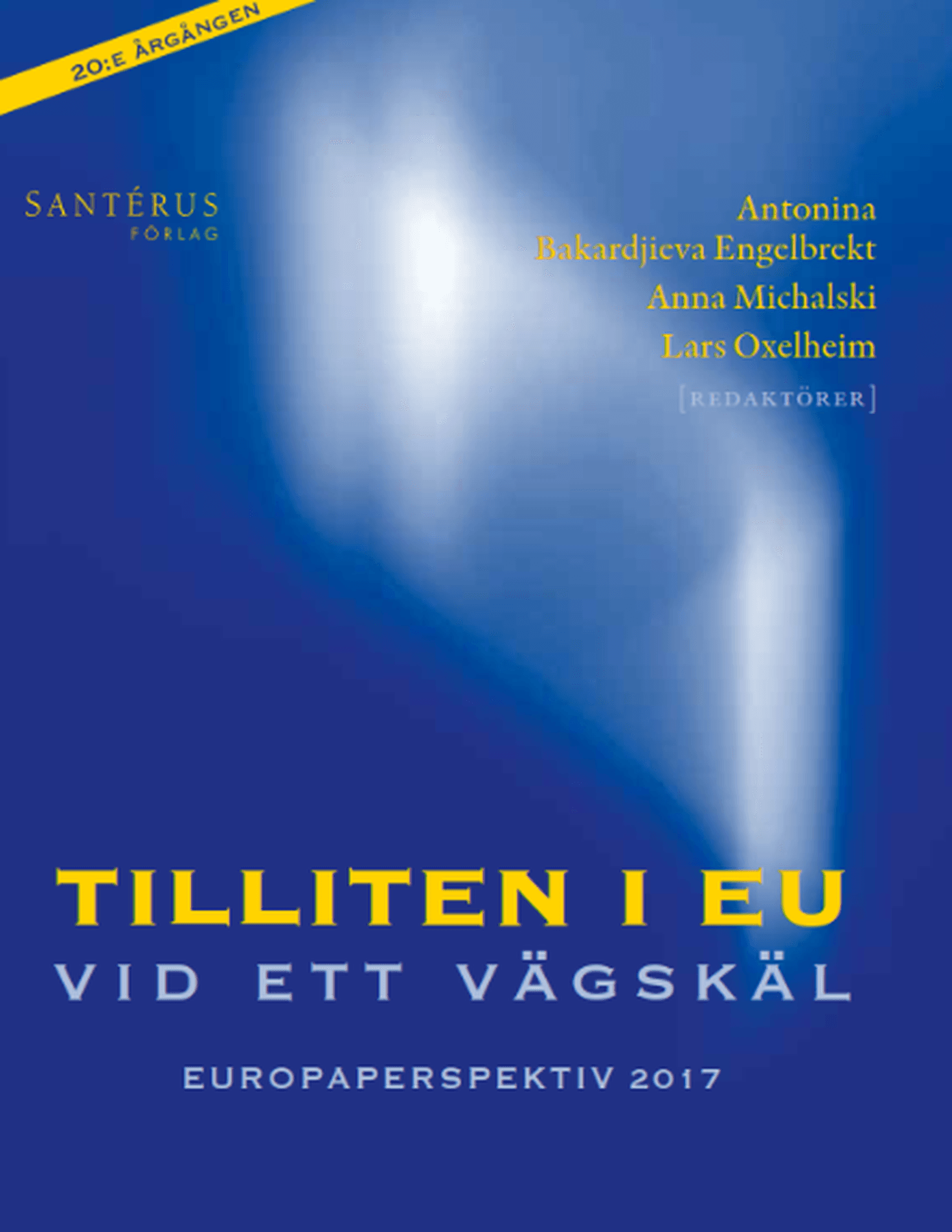Trust in the European Union at a crossroads – Europaperspektiv 2017
Swedish universities have since 1998 cooperated in national networks within political science, economics and law. The purpose is to enhance the interest and knowledge in the European Union. Each year a book is published to disseminate knowledge to a broader audience. The book is divided into three main areas, political science, economics and law and each year grasps a specific topic. The topic of the year is trust, which incorporates trust both between member states but also between citizens and institutions.

Europaperspektiv 2017 was this year hosted by The Swedish Permanent Representation to the EU, Confederation of Swedish Enterprise and the Swedish Trade Union Confederation. On May 23, a seminar was held in Brussels to present the book and discuss the topic of the year.
Among the speakers were the Permanent Representative of Sweden to the EU, Lars Danielsson who introduced the seminar and afterwards followed a panel discussion with responsible authors from different chapters in the book, Göran von Sydow, Esther Herlin-Kernell and Robin Teigland, together with Claes-Mikael Jonsson, a discussant from the Swedish Trade Union Confederation.
Ambassador Lars Danielsson introduced the afternoon by warmly welcoming the book and pointed out that trust among us must be built on EU knowledge and facts. Within the union today there is both trust and mistrust - Brexit in regards to mistrust but EU27 in regards to trust. But overall he is positive there is trust among the members in the union.
The first panelist Esther Herlin-Kernell describes trust in EU from a criminal law perspective. She means that criminal law comes from both trust and mutual recognition among member states. There has been a clear deepened cooperation after the terror attack 11 September 2001, because cooperation has been necessary in a different kind of way after the attack.
- However, the subsidiarity principle is still very important here, because it is important to distinguish between EU law and national competence. There is mistrust among member states´ judicial systems that cannot be neglected.
Esther believes a holistic approach on EU criminal law is essential, because the perspective today tends to be very nationalistic. There is general suspicion among the states, especially when it comes to migration.
Göran von Sydow continues talking about trust in EU from a political science point of view.
- Trust is about future expectations of behavior of others. It is about repeated games and will determine your outlook. It is a matter of how much you are willing to give and give up.
He thinks that there will always be an exit voice in the union along with a fine balance of loyalty towards each other. He believes that in order to control the exit voice, there must be room for representative democracy, which is halting today when a lot of power is delegated to EU.
- Instead representative democracy is strained and we see a lot of populism and technocracy. But taking back control might be more difficult today than one thinks.
Robin Teigland discusses the challenges and opportunities that digitalization and the sharing economy bring. There is another form of trust in this matter, because it is about building trust across networks rather than individuals. By trusting networks, people can build connections and relationships that otherwise would have been impossible. She mentions both Airbnb and Uber as examples of this.
- With the new networks set up in the evolving sharing economy it can ensure trust by decentralizing the power. This way it makes it harder to change the past and actions are put in a chain of transactions.
She elaborates on the possibility for EU to put up guidelines or some sort of standards for the sharing economy, but points out that it is still too early to regulate.
- We still don’t know how this new form of economy will evolve.
Final remarks are held by Claes-Mikael Jonsson from The Swedish Trade Union Confederation. He makes two overall comments based on the presentations;
EU is built upon mistrust – not trust
EU is a union of interests, rather than values
Claes-Mikael means that EU was built on mistrust, after centuries of war and conflicts, and perhaps conflicts within EU politics is a matter that never can be fully solved. He also shares his thoughts on values and interests and links it to the Swedish Trade Union Confederation.
- In a union It's all about interests, you don’t have to like each other, just share common interests. Maybe we can save what we have by taking a step back.
The seminar was moderated by Rolf Fredriksson, from Swedish Television, and gathered about 60 participants from EU institutions, companies, business federations and NGO:s.
The seminar can be watched in English here. For Swedish speakers in can be watched via Swedish Television, part 1 and part 2. For access to the book follow this link.